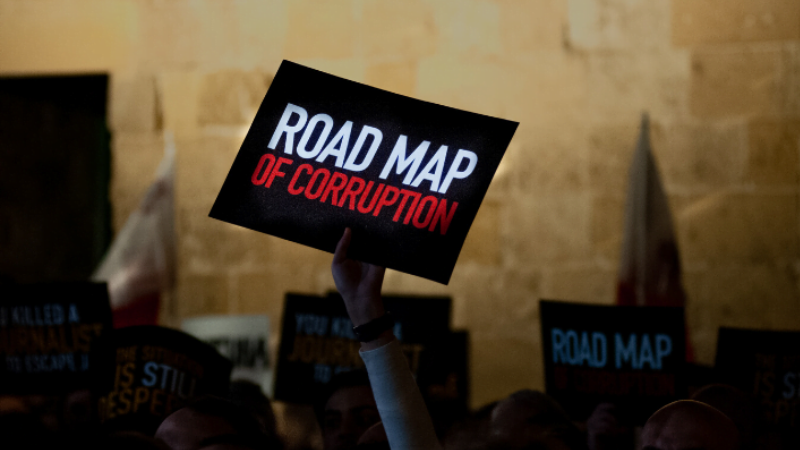Malta is a destination and transit country for human trafficking, illegal fauna trade, drugs and a “haven” for financial crime, according to a report published on Tuesday by independent international civil-society organisation The Global Initiative Against Transnational and Organised Crime.
The “2023 Global Organised Crime Index” report analysed the country’s resilience to organised crime based on its government, judiciary, economic environment and society.
“The vulnerability to organised crime of Malta’s state, political and executive branches, law enforcement, and judiciary is believed to be high,” it said.
Overall, Malta ranked 109 out of 196 countries, scoring 5.0 for criminality. It came 19th out of 48 European countries and was given a resilience rate of just 5.13 out of 10.
The report said, “instances of state capture and infiltration by criminal groups have raised international concerns about how police activities have been hindered by high-level officials concealing connections between the government and organised crime,” with criminals “believed to extract resources from the state through bribes and public procurement.”
However, regarding the type of criminal actors, state-embedded actors were ranked as the riskiest, followed by criminal networks and private sector actors.
The report also noted that Malta is a known “haven for tax evasion,” identifying its citizenship by investment programme as particularly problematic.
The Global Initiative also reported Malta as “a destination and transit country for human trafficking” as “Foreign nationals are trafficked for sexual exploitation or forced labour in industries such as domestic service, massage parlours, nightclubs, construction, and hospitality.”
The report identified most victims of sexual exploitation as being Eastern European women, with victims of forced labour mainly originating from South East Asia.
The report also identified Libya as a primary source of human smuggling operations, funnelling irregular migrants toward Malta as a destination country.
Illegal fauna trade in the form of illegal tuna fishing and bird trading was identified as a “persistent problem”, with “the country being a hotbed for songbird poaching, illegal hunting, and bird trapping,” and illegal tuna fishing “facilitated by corruption and poor oversight.”
The report claimed Malta was both a transit and destination country for illicit substances, particularly cocaine and cannabis, with the illicit market for the latter drug losing influence due to its partial legalisation in 2021.
When analysing the country’s resilience to organised crime, the report found that “Corruption remains a concern in Malta, particularly among high-level politicians.”
Regarding the country’s enforcement, it said, “[Malta’s] police force is severely undermined by a lack of resources, including expert and dedicated investigative capabilities.”
The report also concluded that “The safety of journalists, press freedom, and access to information continue to be problematic issues in Malta,” noting strategic lawsuits against public participation (SLAPPs) and its “highly polarised” media ownership as particular problems.
“There is a significant gap between the government and law enforcement authorities, civil society, and opposition parties regarding the rule of law, corruption, and organised crime,” it concluded.
The 2023 Global Organised Crime Index report follows an earlier edition of the report made in 2021.
The European Union partly finances the Global Initiative’s work as part of the ENACT programme and the United States Government.













Looks like they pretty much got it right, they missed out the bit where all these factors are wholly supported by 2/3rds of the population who are comfortable living in this dystopian excuse for a democratic country.
Next stop, return to the grey list?
It could happen…deserved definitely. Only this time for a longer period.